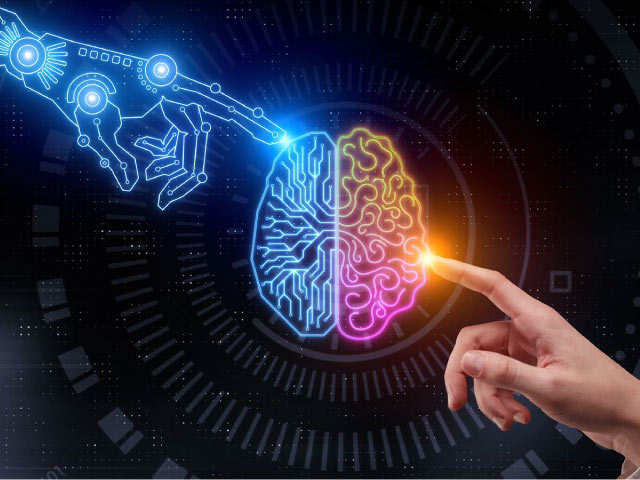Artificial Intelligence (AI) has been making waves across industries, transforming the way we live and work. Its evolution is a continuous journey that promises to reshape our future. In this article, we will explore the current trends in AI and their implications on society, businesses, and individuals.
The Current Landscape
AI has come a long way since its inception. The early stages of AI were characterized by simple rule-based systems that could perform specific tasks. However, recent advancements in machine learning and deep learning have unlocked the true potential of AI. Today, AI systems can understand, reason, and learn from data, making them more versatile and powerful.
Natural Language Processing (NLP)
One of the most exciting developments in AI is Natural Language Processing (NLP). NLP enables machines to understand and generate human language. This technology has led to the creation of chatbots, virtual assistants, and language translation services that have become integral parts of our daily lives. NLP is set to revolutionize customer service, content creation, and communication.
Computer Vision
Computer vision is another area of AI that has seen significant progress. Machines can now interpret and analyze visual information, leading to applications like facial recognition, autonomous vehicles, and medical image analysis. These innovations have the potential to improve security, transportation, and healthcare.
Predictive Analytics
Predictive analytics, powered by AI, allows businesses to make data-driven decisions. It can forecast customer behavior, optimize supply chains, and enhance marketing strategies. With AI’s ability to process vast amounts of data, organizations can gain a competitive edge by staying ahead of market trends.
Robotics
AI-driven robotics are becoming increasingly sophisticated. From self-driving cars to drones to automated manufacturing processes, robots are transforming various industries. They are not only increasing efficiency but also reducing the risk of human error in critical tasks.
Future Trends
The future of AI holds exciting possibilities, and several trends are set to shape the AI landscape in the coming years.
Explainable AI
One major concern with AI is its “black box” nature. Explainable AI seeks to make AI systems more transparent and understandable. This trend will be crucial in gaining trust and acceptance, particularly in highly regulated sectors like healthcare and finance.
Edge AI
Edge AI involves processing data on the device or at the “edge” of the network, rather than relying on centralized cloud servers. This reduces latency and enhances privacy. Edge AI will play a pivotal role in the development of IoT devices and real-time applications.
AI in Healthcare
AI’s potential in healthcare is enormous. It can assist in disease diagnosis, drug discovery, and personalized treatment plans. Telemedicine and AI-powered robots are likely to become more prevalent, making healthcare more accessible and efficient.
Ethical AI
As AI systems become more integrated into our lives, ethical considerations become paramount. The responsible use of AI, data privacy, and bias mitigation are key concerns. The development of ethical AI frameworks and regulations will be essential in the future.
Implications
The rapid growth of AI comes with both promise and challenges.
Job Disruption
While AI can automate routine tasks, there is a concern about job displacement. To mitigate this, individuals will need to upskill and adapt to new roles that AI cannot perform, such as creativity, critical thinking, and emotional intelligence.

Privacy and Security
As AI becomes more integrated into daily life, the amount of data collected and processed increases. Ensuring data privacy and cybersecurity is critical to protect individuals and organizations from potential breaches and misuse of information.
Ethical Dilemmas
AI decisions may sometimes raise ethical dilemmas. For instance, self-driving cars may face situations where a moral decision is required. Addressing these dilemmas and developing ethical AI systems is essential.
Technological Dependence
As we rely more on AI, there is a risk of over-dependence on technology. Maintaining a balance and being prepared for AI system failures is crucial to ensure we are not left vulnerable.
Conclusion
The future of Artificial Intelligence is incredibly bright, with numerous opportunities and challenges. Embracing the trends in AI and addressing their implications will be vital in shaping a future where AI enhances our lives and empowers us. It is essential to ensure that AI evolves ethically, responsibly, and for the benefit of humanity. If you found this article interesting about technology, it is very likely you will enjoy further reading at Internet Adana.




